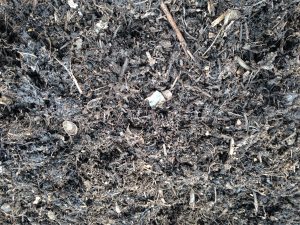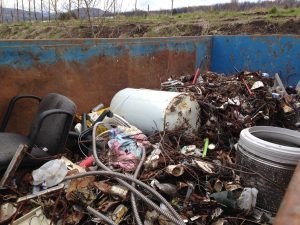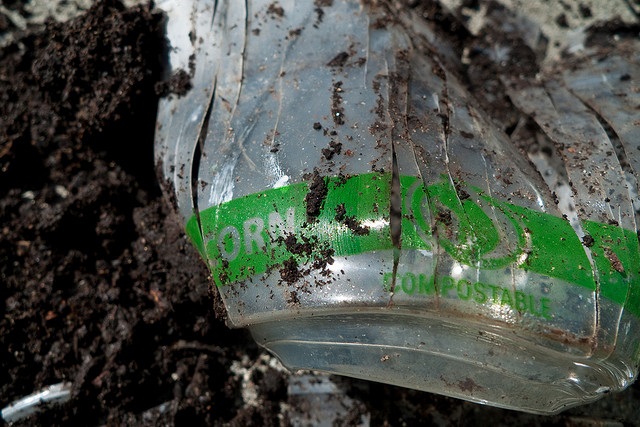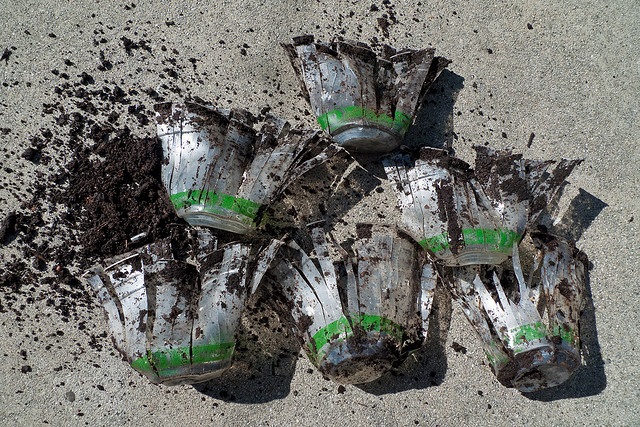Organic waste is the organic fraction of municipal solid waste, including food scraps and yard trimmings. Common types of contaminants in organic waste include heavy metals, herbicides, pesticides, plastics, glass and ceramics. Although some of these contaminants are difficult to separate, plastics, glass and ceramics are all easily avoidable through responsible consumer sorting and waste disposal.
Plastics, glass and ceramics can make their way into the green bin and eventually composting systems through irresponsibility but also due to misunderstanding by consumers. For example, a very common contaminant is fruit stickers. A likely reason that they are so common is the misperception that small amounts of contaminants are harmless. This is not true! The smaller the contaminant, the harder it is for the composting facility to screen and remove. Often small contaminants such as fruit stickers will still be visible in a final compost product, reducing the compost’s biological quality and overall value for compost producers.


One of the trickiest contaminants to avoid are plastics labelled biodegradable or compostable; common products include biodegradable bags for lining compost bins and biodegradable take-out utensils and containers. Although biodegradable, the decomposition process occurs too slowly for most composting facilities to be able to accept and process with other organic waste. Futhermore, biodegradable plastics are indistinguishable from regular plastics once mixed in with organic waste, making all of appear as just plain old plastic contaminants. This is a tricky one, but it is very important to spread the word – ANY plastic, including biodegradable plastic, cannot be processed in composting facilities.


Photo credit: Flickr user Zane Selvans.
Compostable cups made from corn-based plastic after 2 years in a compost pile.
Photo credit: Flickr user Zane Selvans.
Every municipality has different allowable food scrap items. Check out our resources page to find your municipality!